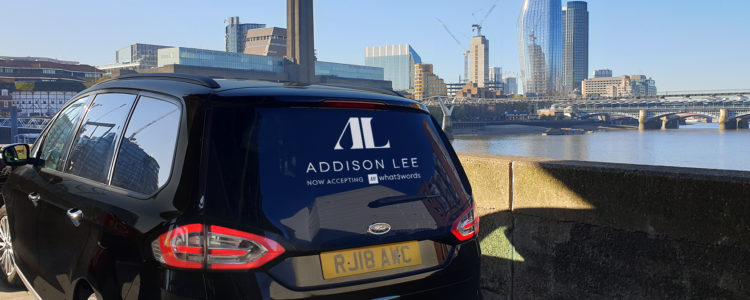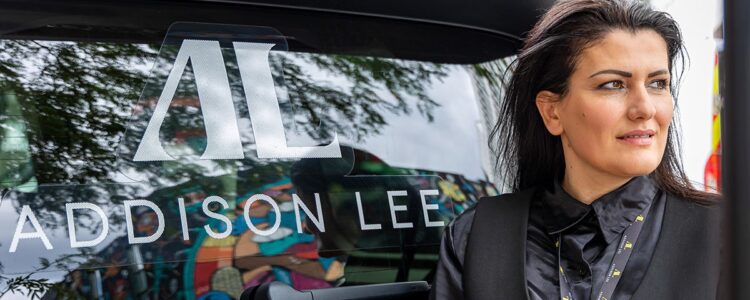
Addison Lee incorporates what3words technology for enhanced accuracy
Addison Lee becomes first UK private hire firm to use progressive location technology in bookings
- Technology will help with journeys and deliveries where additional detail is required
- People and parcels being precisely picked up and dropped off will minimise contact with others and enhance safety
- Research shows only 34% of UK postal addresses lead to the front door
Addison Lee, London’s largest premium private hire business and same day courier operation, has integrated progressive location technology what3words into its booking tools to help with journeys and deliveries where a greater level of accuracy is required.
what3words will complement existing address technology on Addison Lee’s booking platforms to help customers where they are navigating London’s hard-to-find addresses, or buildings and locations with multiple entrances, such as hospitals, offices and sports stadiums. Importantly, in the current pandemic, if a customer has a hospital appointment at a particular wing, they can enter the what3words location in the Addison Lee app and be taken straight to the door – not only accurate but also avoiding unnecessary contact and enhancing safety.
what3words has divided the world into a grid of 3m squares and given each a three-word identifier. Entering ///admiral.turkey.pushed as a destination in the Addison Lee app, for example, will take you to the front entrance of what3words’ London office. If passengers were looking to go to the canal side entrance they could be dropped off at ///bands.piano.gave and walk to ///youth.runner.guess. what3words technology can be used across all Addison Lee booking channels – app, web and phone.
Liam Griffin, Addison Lee’s CEO said: ‘Among the millions of journeys and deliveries we do every year, there’ll always be some that need extra detail due to London’s wonderful scale and complexity. Our partnership with what3words will give us the extra accuracy to get our customers and deliveries to the exact right location – whether that’s the right office doors for your job interview or the gift to the deliveries entrance.’
Being incredibly precise with location means customers and drivers will be able to avoid some of the current challenges of street addresses. A business name or postal address will often drop a pin in the centre of the building – which can be difficult to navigate if the destination is a large office building or hospital with multiple entrances and departments.
A recent addressing study ‘Efficient and future-proof’ indicates only a third (34%) of UK postal addresses lead right to the front door of a property, with the majority identifying only a building, street or, in some cases, a general area. 22% of respondents had been taken to the wrong place entirely after inputting postal addresses into sat nav.
‘Postal addresses are not accurate enough for the modern world. Visitors to our office know this well. Entering our central London postal address into any sat nav, ride-hailing or navigation app won’t take you anywhere near our building. It actually drops a pin in the middle of the A40 Westway flyover that runs beside our office. This can add an extra 20 minutes to your journey and causes quite a lot of frustration. By accepting what3words addresses, Addison Lee is alleviating pain points like this and making their experience by far the safest, fastest and easiest around.’ Chris Sheldrick, co-founder and CEO of what3words.
Integrating the what3words technology into the Addison Lee platform is the latest initiative which underlines the company’s commitment to providing the safest experience possible. Following the outbreak of the COVID-19 pandemic, Addison Lee launched its Safer Journey Initiative, a range of measures designed to protect drivers and passengers, including the installation of TfL-approved screens across its standard fleet, regular deep cleaning inside and outside the vehicle and the provision to drivers of electro-static spray that kills 99.99% of germs for use after every journey.
Around the UK, people are using what3words in many unique and individual ways. From providing what3words addresses on check-out pages, to route navigation inside Mercedes-Benz cars, or simply to meet friends. what3words is also accepted by 85% of emergency services in the UK, including the Metropolitan Police.
Related Posts
Christmas in London is truly magical. From enchanting concerts to ice rinks, the city transforms into a winter wonderland filled …
If you’re considering a career as a private hire driver in London, the first step is obtaining a private hire …


